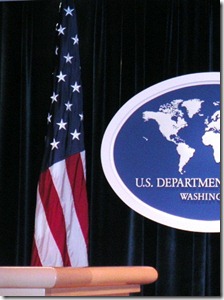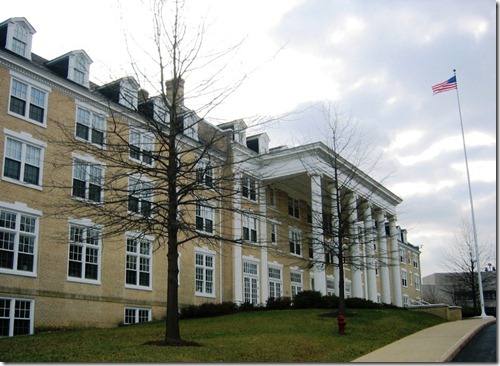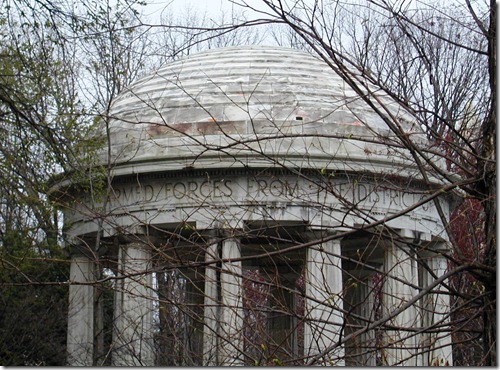Today is Martin Luther King, Jr. Day, a day to reflect on the Rev. Dr. Martin Luther King, Jr. and his legacy. I remember standing on the steps of the Lincoln Memorial in Washington, D.C. looking down on the Reflecting Pool in 2004.The place looked much as it did when Dr. King stood in the same place on August 28, 1963, and delivered his famous “I Have A Dream” speech. I imagined the National Mall filled with a diverse audience listening intently to Dr. King. It must have been an amazing day. I remember hearing Congressman John Lewis talk about it in the 1990s when I worked in the U.S. Congress. I recall how his eyes lit up when he spoke of that historical day. I wish I had been there to see it.
[youtube=http://www.youtube.com/watch?v=smEqnnklfYs&w=448&h=252&hd=1]
The March on Washington, August 28, 1963
We have come a long way as a society in countering racism. While racism still occurs in the United States and around the world, most Americans would agree that racism has declined since Dr. King delivered his speech in 1963. We now have an African-American president, President Obama, whose father was from Kenya, mother a Caucasian from Kansas, and has a half-sister whose father was Indonesian. Income inequality, particularly among minorities, still exists and worsened during the recent economic downturn, but the days of segregation and institutionalized racism are over. This is Dr. King’s legacy.
When President Ronald Reagan signed the holiday into law in 1983, a fact few remember, I wondered why the Federal Government would establish a holiday dedicated to someone who had not been elected to public office. I thought of Chief Joseph, Susan B. Anthony, Malcolm X, and Frederick Douglass, other influential pioneers of human rights in America who deserved to be honored. Now that we have an American-American president serving during a divisive period in U.S. history, I appreciate more than ever that the honor went to Dr. King, who rose above politics to focus on ideals. Each of us has our own view of what this holiday means to us. To me, it represents the celebration of unity and freedom regardless of race and creed. As Dr. King said in his 1963 speech:
When we let freedom ring, when we let it ring from every village and every hamlet, from every state and every city, we will be able to speed up that day when all of God’s children, black men and white men, Jews and Gentiles, Protestants and Catholics, will be able to join hands and sing in the words of the old Negro spiritual, “Free at last! Free at last! Thank God Almighty, we are free at last!”
Most people have never read Dr. King’s speech, one of the greatest orations in history. It sends a powerful message that still rings true today. What strikes me most is that Dr. King called on us to join hands in unity with those who are different. Therein lay the essence of freedom. This message is easy to disregard in our supercharged political environment. Americans need to come together in unity, not as Democrat or Republican, liberal or conservative, urban or rural, Red or Blue Stater, Tea Partier or Occupy Wall Streeter, African American, Caucasian, Asian, or Native American, but as Americans. The day this happens will be a very tremendous one for America. I can only hope and pray that day comes soon.
Here is Dr. King’s speech in its entirety.
Dr. Martin Luther King, Jr.
“I Have A Dream”
The March on Washington
August 28, 1963
Five score years ago, a great American, in whose symbolic shadow we stand signed the Emancipation Proclamation. This momentous decree came as a great beacon light of hope to millions of Negro slaves who had been seared in the flames of withering injustice. It came as a joyous daybreak to end the long night of captivity. But one hundred years later, we must face the tragic fact that the Negro is still not free.
One hundred years later, the life of the Negro is still sadly crippled by the manacles of segregation and the chains of discrimination. One hundred years later, the Negro lives on a lonely island of poverty in the midst of a vast ocean of material prosperity. One hundred years later, the Negro is still languishing in the corners of American society and finds himself an exile in his own land.
So we have come here today to dramatize an appalling condition. In a sense we have come to our nation’s capital to cash a check. When the architects of our republic wrote the magnificent words of the Constitution and the Declaration of Independence, they were signing a promissory note to which every American was to fall heir.
This note was a promise that all men would be guaranteed the inalienable rights of life, liberty, and the pursuit of happiness. It is obvious today that America has defaulted on this promissory note insofar as her citizens of color are concerned. Instead of honoring this sacred obligation, America has given the Negro people a bad check which has come back marked “insufficient funds.” But we refuse to believe that the bank of justice is bankrupt. We refuse to believe that there are insufficient funds in the great vaults of opportunity of this nation.
So we have come to cash this check — a check that will give us upon demand the riches of freedom and the security of justice. We have also come to this hallowed spot to remind America of the fierce urgency of now. This is no time to engage in the luxury of cooling off or to take the tranquilizing drug of gradualism. Now is the time to rise from the dark and desolate valley of segregation to the sunlit path of racial justice. Now is the time to open the doors of opportunity to all of God’s children. Now is the time to lift our nation from the quicksands of racial injustice to the solid rock of brotherhood.
It would be fatal for the nation to overlook the urgency of the moment and to underestimate the determination of the Negro. This sweltering summer of the Negro’s legitimate discontent will not pass until there is an invigorating autumn of freedom and equality. Nineteen sixty-three is not an end, but a beginning. Those who hope that the Negro needed to blow off steam and will now be content will have a rude awakening if the nation returns to business as usual. There will be neither rest nor tranquility in America until the Negro is granted his citizenship rights.
The whirlwinds of revolt will continue to shake the foundations of our nation until the bright day of justice emerges. But there is something that I must say to my people who stand on the warm threshold which leads into the palace of justice. In the process of gaining our rightful place we must not be guilty of wrongful deeds. Let us not seek to satisfy our thirst for freedom by drinking from the cup of bitterness and hatred.
We must forever conduct our struggle on the high plane of dignity and discipline. we must not allow our creative protest to degenerate into physical violence. Again and again we must rise to the majestic heights of meeting physical force with soul force.
The marvelous new militancy which has engulfed the Negro community must not lead us to distrust of all white people, for many of our white brothers, as evidenced by their presence here today, have come to realize that their destiny is tied up with our destiny and their freedom is inextricably bound to our freedom.
We cannot walk alone. And as we walk, we must make the pledge that we shall march ahead. We cannot turn back. There are those who are asking the devotees of civil rights, “When will you be satisfied?” we can never be satisfied as long as our bodies, heavy with the fatigue of travel, cannot gain lodging in the motels of the highways and the hotels of the cities. We cannot be satisfied as long as the Negro’s basic mobility is from a smaller ghetto to a larger one. We can never be satisfied as long as a Negro in Mississippi cannot vote and a Negro in New York believes he has nothing for which to vote. No, no, we are not satisfied, and we will not be satisfied until justice rolls down like waters and righteousness like a mighty stream.
I am not unmindful that some of you have come here out of great trials and tribulations. Some of you have come fresh from narrow cells. Some of you have come from areas where your quest for freedom left you battered by the storms of persecution and staggered by the winds of police brutality. You have been the veterans of creative suffering. Continue to work with the faith that unearned suffering is redemptive.
Go back to Mississippi, go back to Alabama, go back to Georgia, go back to Louisiana, go back to the slums and ghettos of our northern cities, knowing that somehow this situation can and will be changed. Let us not wallow in the valley of despair. I say to you today, my friends, that in spite of the difficulties and frustrations of the moment, I still have a dream. It is a dream deeply rooted in the American dream.
I have a dream that one day this nation will rise up and live out the true meaning of its creed: “We hold these truths to be self-evident: that all men are created equal.” I have a dream that one day on the red hills of Georgia the sons of former slaves and the sons of former slaveowners will be able to sit down together at a table of brotherhood. I have a dream that one day even the state of Mississippi, a desert state, sweltering with the heat of injustice and oppression, will be transformed into an oasis of freedom and justice. I have a dream that my four children will one day live in a nation where they will not be judged by the color of their skin but by the content of their character. I have a dream today.
I have a dream that one day the state of Alabama, whose governor’s lips are presently dripping with the words of interposition and nullification, will be transformed into a situation where little black boys and black girls will be able to join hands with little white boys and white girls and walk together as sisters and brothers. I have a dream today. I have a dream that one day every valley shall be exalted, every hill and mountain shall be made low, the rough places will be made plain, and the crooked places will be made straight, and the glory of the Lord shall be revealed, and all flesh shall see it together. This is our hope. This is the faith with which I return to the South. With this faith we will be able to hew out of the mountain of despair a stone of hope. With this faith we will be able to transform the jangling discords of our nation into a beautiful symphony of brotherhood. With this faith we will be able to work together, to pray together, to struggle together, to go to jail together, to stand up for freedom together, knowing that we will be free one day.
This will be the day when all of God’s children will be able to sing with a new meaning, “My country, ’tis of thee, sweet land of liberty, of thee I sing. Land where my fathers died, land of the pilgrim’s pride, from every mountainside, let freedom ring.” And if America is to be a great nation, this must become true. So let freedom ring from the prodigious hilltops of New Hampshire. Let freedom ring from the mighty mountains of New York. Let freedom ring from the heightening Alleghenies of Pennsylvania! Let freedom ring from the snowcapped Rockies of Colorado! Let freedom ring from the curvaceous peaks of California! But not only that; let freedom ring from Stone Mountain of Georgia! Let freedom ring from Lookout Mountain of Tennessee! Let freedom ring from every hill and every molehill of Mississippi. From every mountainside, let freedom ring.
When we let freedom ring, when we let it ring from every village and every hamlet, from every state and every city, we will be able to speed up that day when all of God’s children, black men and white men, Jews and Gentiles, Protestants and Catholics, will be able to join hands and sing in the words of the old Negro spiritual, “Free at last! Free at last! Thank God Almighty, we are free at last!”
Here are previous posts I wrote in honor of Dr. King and Rosa Parks, another pioneer in the American Civil Rights movement.
http://worldadventurers.wordpress.com/2005/01/19/reflecting-on-dr-king/
http://worldadventurers.wordpress.com/2006/01/17/martin-luther-king-jr-s-legacy/
http://worldadventurers.wordpress.com/2005/11/03/thank-you-rosa-parks/
M.G. Edwards is a writer of books and stories in the mystery, thriller and science fiction-fantasy genres. He also writes travel adventures. He recently published a collection of short stories called Real Dreams: Thirty Years of Short Stories available as an ebook and in print on Amazon.com. His upcoming travel novel, Kilimanjaro: One Man’s Quest to Go Over the Hill, will be available in March 2012. He lives in Bangkok, Thailand with his wife Jing and son Alex. For books and stories by M.G. Edwards, visit his web site at www.mgedwards.com or contact him at me@mgedwards.com.
 While 231 may not sound like a large number, consider that at any given time there are only about 11,000 American diplomats versus the more than 2.5 million members of the U.S. Armed Forces. A rough comparison of casualties during the Iraq War in 2008 revealed that personnel working for the State Department in Iraq during 2003-08 had a casualty rate of about 50% that of their military counterparts. As the events of September 11, 2001, showed, you don’t have be involved in active combat to be a casualty of war and terrorism.
While 231 may not sound like a large number, consider that at any given time there are only about 11,000 American diplomats versus the more than 2.5 million members of the U.S. Armed Forces. A rough comparison of casualties during the Iraq War in 2008 revealed that personnel working for the State Department in Iraq during 2003-08 had a casualty rate of about 50% that of their military counterparts. As the events of September 11, 2001, showed, you don’t have be involved in active combat to be a casualty of war and terrorism.

